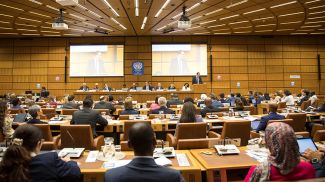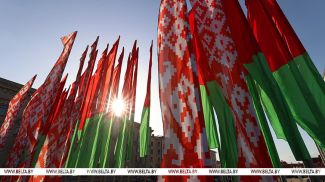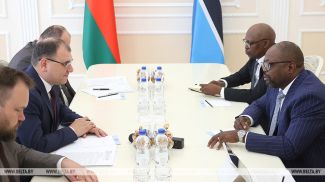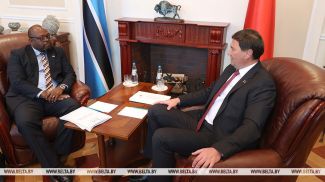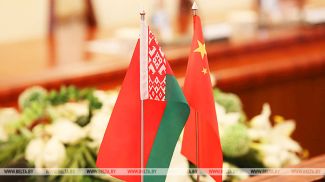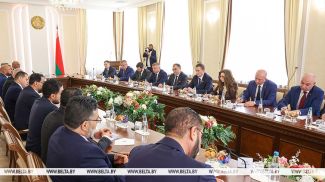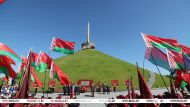MINSK, 24 November (BelTA) – The BBC reporter Steve Rosenberg has lied to justify the editorial censure of the most inconvenient responses Belarus President Aleksandr Lukashenko gave him during a recent interview, BelTA learned from the Telegram channel of the Belarusian Union of Journalists.
The message reads: “In particular, the interview aired by the BBC no longer contains real facts of Poland's crimes against humanity, forcible deaths of 13 people, double standards, and lies about the presidential election campaign in Belarus in 2020. The full interview was aired by Belarusian mass media. Rosenberg's key lie was made after that in an interview with American propagandists and foreign agents. The reporter said that as far as he is aware, Poland has not invited refugees to come to the border checkpoint Bruzgi-Kuznica where Polish law enforcement personnel punished and intimated refugees and reporters using toxic chemicals, water cannons, and gas. Over 120 refugees and seven reporters were hurt as a result of the punitive operation.”
To prove that BBC's Steve Rosenberg lied, the Belarusian Union of Journalists posted a video, in which a Polish border guardsman advises refugees to go to a border checkpoint with documents.


The Telegram channel of the Belarusian Union of Journalists also cited an opinion of a Doctor of Political Sciences, MGIMO University professor about the Belarus president's interview with the BBC.
The message reads: “The interview was cut down to 23 minutes for the West. At the same time Rosenberg complained about how the interview had been edited by the Belarusian television. He said his questions were grouped together into blocs, Lukashenko's replies were long, and some replies and reactions of the reporter were edited out. I think the last thing is not important at all. Information coming from the newsmaker is what matters to me. We don't want to hear Rosenberg, but Lukashenko. But I was outraged most of all and once again not by the reaction of the Western audience but by the detestable behavior of ‘journalists' of a well-known Russian radio station, which will never be classified as a foreign agent due to understandable reasons. The girl, who is only fit to be a street vendor, said that having an interview with Lukashenko is tantamount to talking to terrorists. As a matter of fact, the Belarusian side can and should sue her for libel and humiliation of the head of state. The bottom line is that the interview is very interesting just like any conversation with Lukashenko. He was passionate and emotional but most importantly Batka didn't try to look good but talked what he knows well and what he thinks. A leader with Lukashenko's experience certainly knows limits of what can be said. Nevertheless, I recommend you watch it and form your own opinion.”




